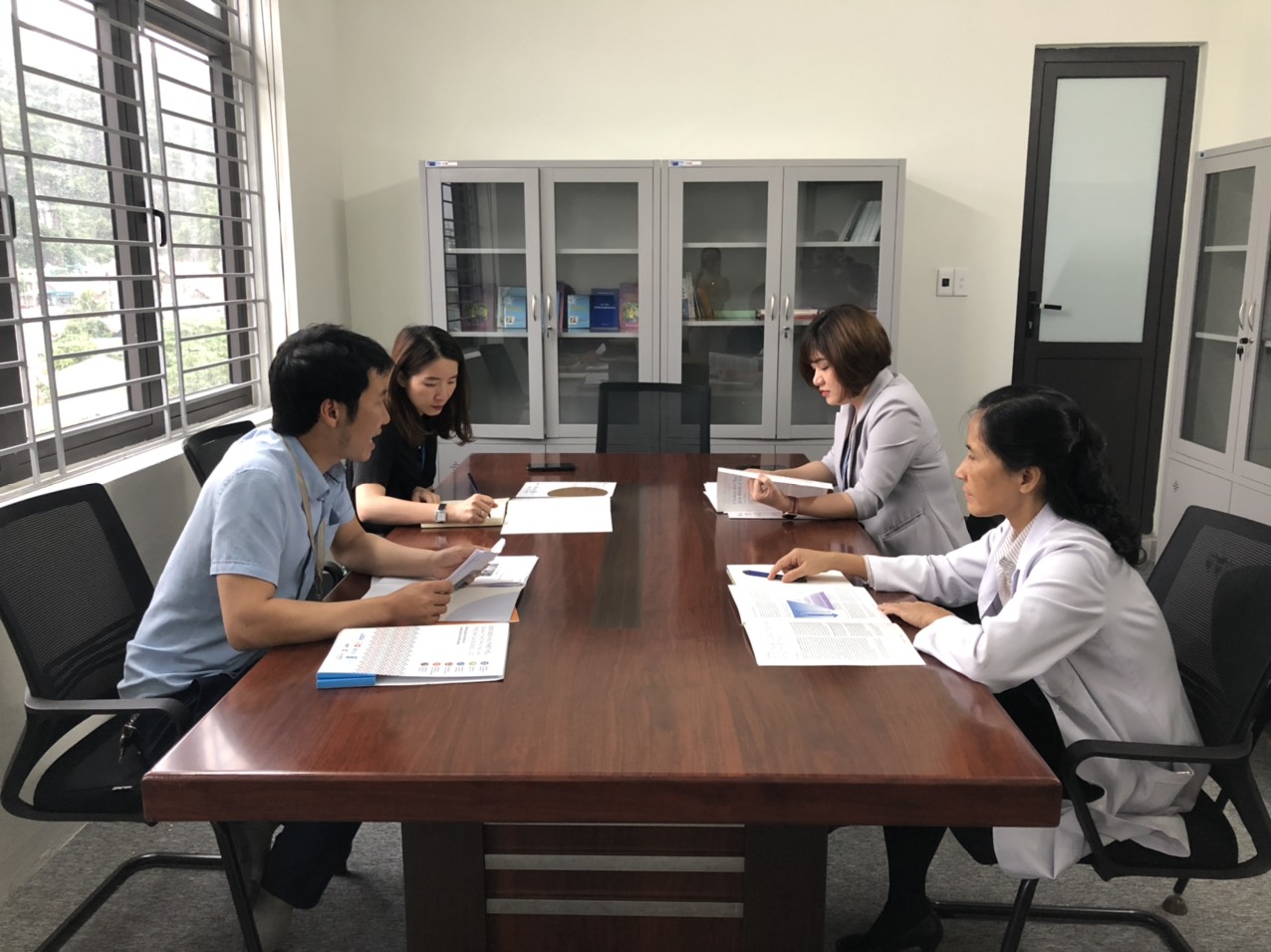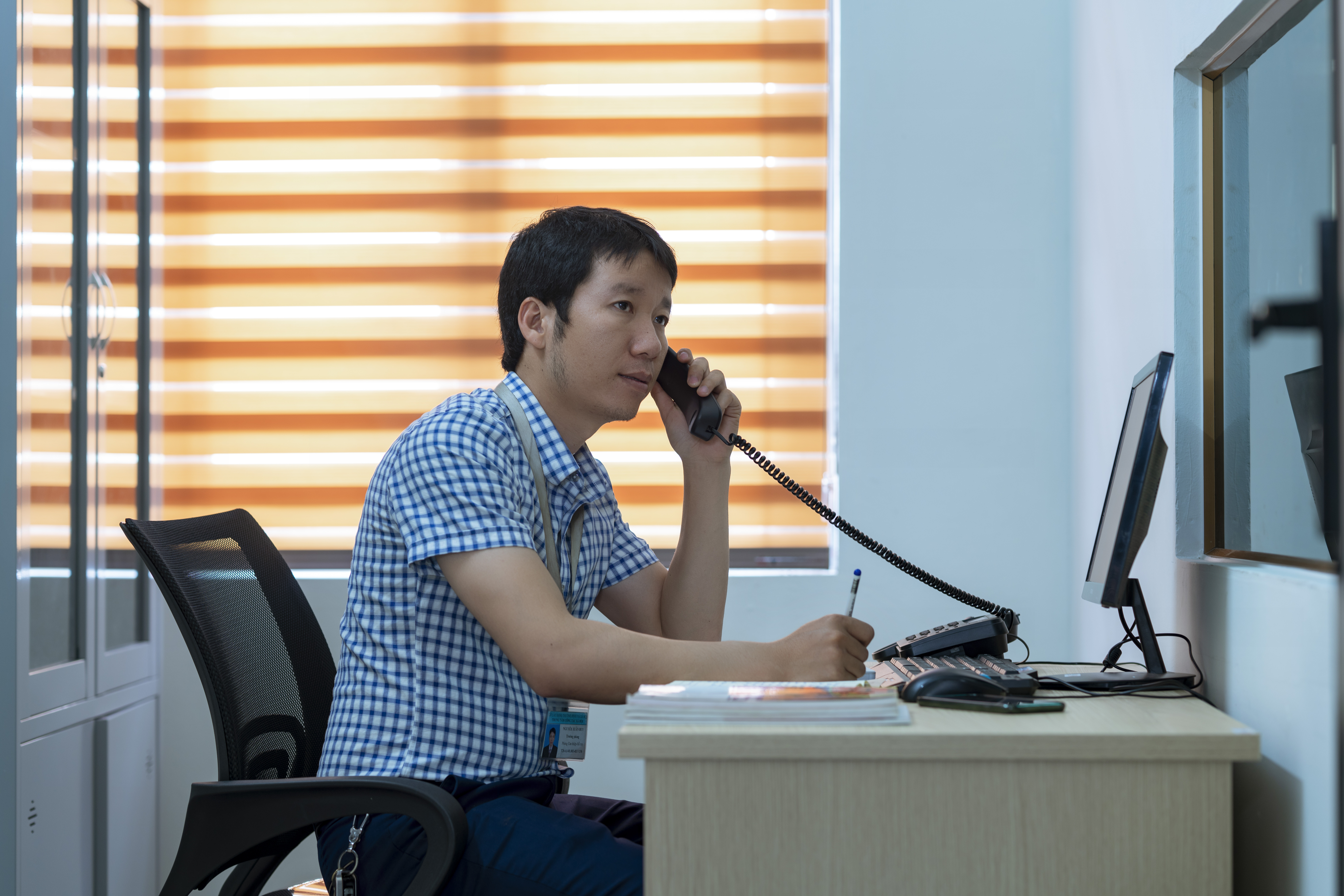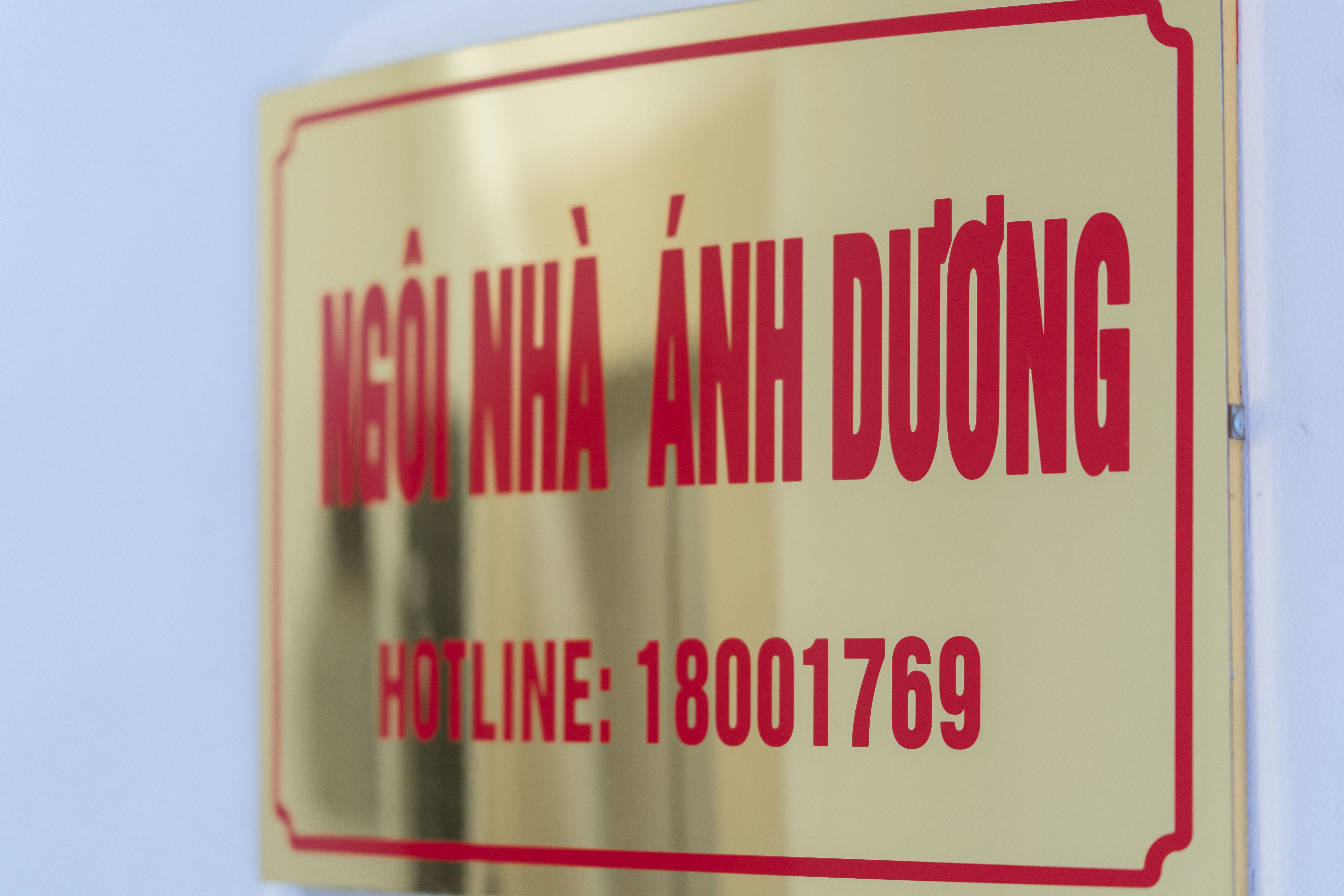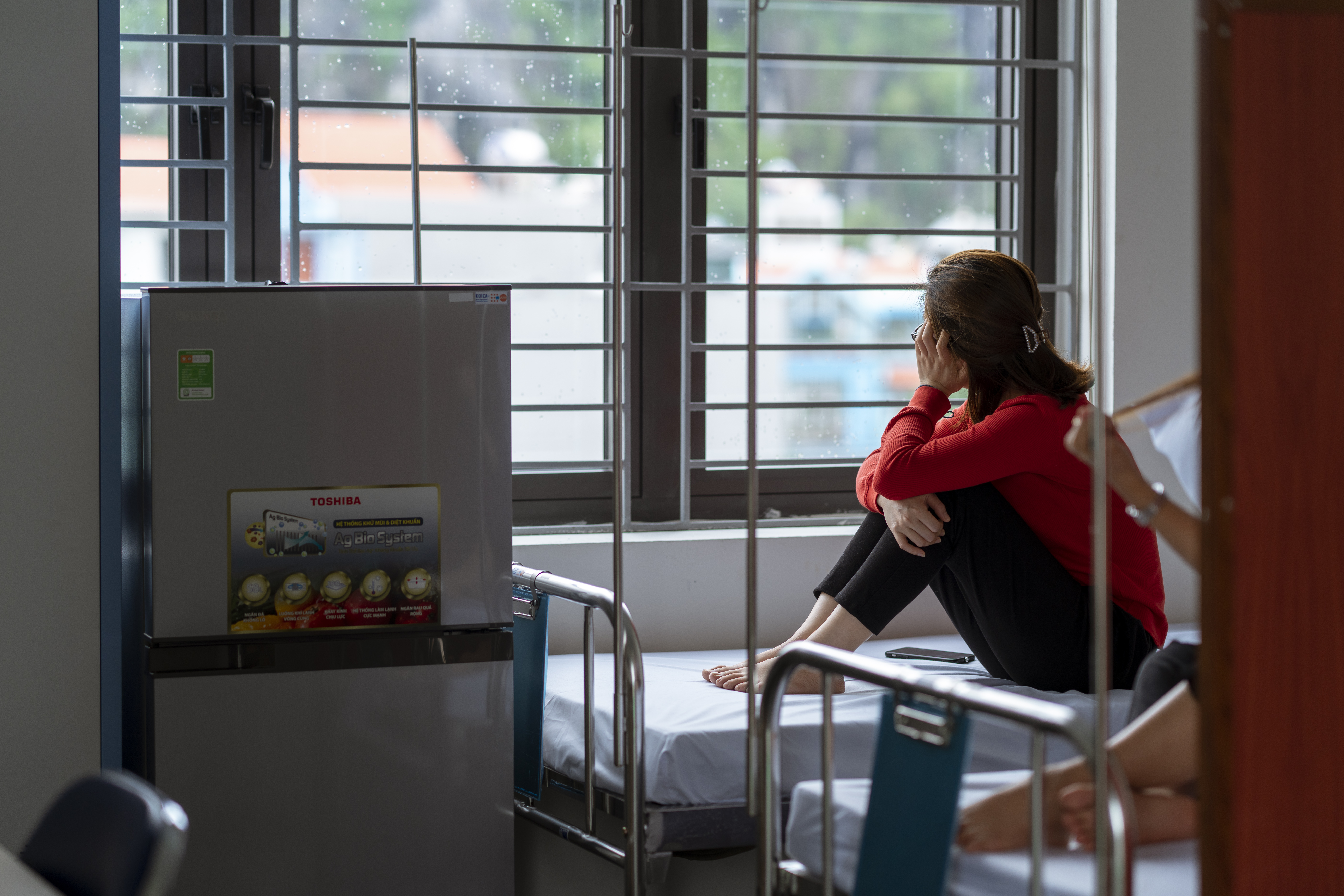QUANG NINH PROVINCE, VIET NAM, 29 April 2020 – The “Anh Duong” (Sunshine) House Shelter for the provision of essential services to survivors of violence against women and girls was jointly launched this morning for the first time in Quang Ninh province, by the Ministry of Labour, Invalids and Social Affairs (MOLISA) and the United Nations Population Fund (UNFPA) in partnership with the Korea International Cooperation Agency (KOICA).
Gender-based violence (GBV) is still a problem everywhere, everyday, including Viet Nam, and remains one of the most pervasive human rights violations in the world. It is estimated that one in three women on average globally experience some form of violence over their lifetimes, usually at the hands of a spouse or domestic partner. Now, the COVID-19 pandemic may be exacerbating the problem, as women are confined indoors under lockdowns and quarantines for extended periods of time, often with the men who are perpetuating the violence against them.
A survivor at the Sunshine House Shelter in Quang Ninh Province. Image: UNFPA Viet Nam.
In Viet Nam, the 2010 National Study on Domestic Violence against Women, released by the General Statistics Office, under the coordination of UNFPA Viet Nam, showed that 58 per cent of ever-married women had experienced at least one of three forms of violence (physical, sexual or psychological) in their lifetime. About half of the survivors did not tell anyone about the violence they endured, and 87 per cent did not seek any help from public services.
Data from Quang Ninh province shows that between 2016-2018, there were 555 cases of gender-based violence reported, with women constituting 81 per cent of the cases. Further breaking down the data, there were cases of emotional violence (65.2 per cent), physical violence (29 per cent), sexual violence (2.3 per cent), and economic violence (9.5 per cent). The large majority (76.3 per cent) of survivors were in the age group of 16-59 years.
In times of crisis such as the COVID-19 outbreak, women and girls may be at higher risk of intimate partner violence and other different forms of violence caused by other members of the family, due to confined environment at home for a prolonged period of time, restrictions of movement, and heightened stress and tensions in the household. Other forms of GBV may include sexual exploitation and abuse in these situations. In some countries, the number of women calling for help has doubled. In Viet Nam, GBV service providers have also observed an increase of calls in recent weeks.
“Anh Duong” House Shelter is one of 18 essential service providers to GBV survivors in response to gender-based violence, which are currently are being implemented under a pilot programme by the Gender Equality Department. These facilities provide a safe space for women survivors, offering timely, integrated and quality essential services, including health and physical care, psychosocial support, other surivors and legal aids.

Counsellors meet to discuss their work to support GBV survivors. Image: UNFPA Viet Nam.
"We hope that the launching of Anh Duong House Shelter will effectively contribute to our efforts in the prevention of, and effective response to violence against women and girls in Viet Nam”, said Mr. Pham Ngoc Tien, Director of Gender Equality Department, Ministry of Labour, Invalids and Social Affairs.
“Violence against women and girls undermines the integrity of the human spirit. It has tremendous costs not only for the victims but also to families, communities, and societies in terms of livelihood, health, safety, school achievement, productivity and rule of law. We believe that every woman and girl has the right to live in a GBV-free environment. The project’s activities including the establishment of one coordination mechanism to facilitate inter-institutional support for essential services will bring about efficient, professional, gender-sensitive and tailored assistance to GBV survivors,” said Mr. Cho Han-Deog, Country Director of the KOICA Viet Nam Office.

A helpline counsellor takes calls from gender-based violence survivors. Image: UNFPA Viet Nam.
“Our staff operate around the clock. They have the necessary skills to deal with sensitive gender-based violence related information, and any survivors when in need of support shall be welcomed, and provided with timely and personal care and follow-up actions to find solutions against the violence. Essential services provided at the Sunshine House will follow a survivor-centered approach where the women's needs are met with respect, sympathy, impartiality and confidentiality,” said Mr. Nguyen Phuc Phong, Director of the “Anh Duong” House Shelter and the Quang Ninh Provincial Social Work Center.
“UNFPA is committed to continuing our support to the Government of Viet Nam and other partners to end gender-based violence and achieve gender equality in Viet Nam. I call on everyone to join forces to make sure that women and girls can live a life free of violence, have equal access to opportunities and resources, exercise their leadership, and participate fully in the country’s process to achieve the Sustainable Development Goals. Together, we can work towards a world where both men and women, and boys and girls, can enjoy life with dignity,” said Ms. Naomi Kitahara, UNFPA Representative in Viet Nam.
No matter where violence against women happens, what forms it takes, and whom it impacts, it must be stopped. The promise of the Sustainable Development Goals - to leave no one behind – will not be fulfilled without ending violence against women. Under UNFPA’s support, the toll free hotline 1800 1769 is operational to receive information on incidents of GBV for an urgent response and online counselling. UNFPA plans to expand its scope of work in addressing gender-based violence amid COVID-19 and beyond, to help Viet Nam realize an equitable, gender-equal society.

Survivors of gender-based violence can call a hotline for an immediate response. Image: UNFPA Viet Nam.
For further information, please contact:
Ms. Nguyen Thi Hong Thanh, UNFPA Viet Nam Communications
Mob: +84 913 093363
Email: tnguyen@unfpa.org
Ms. Do Thi Le
Head of Communications and Training Division, Quang Ninh Social Work Center,
Mob: +84 963 099 688
Email: dothile1987@gmail.com



